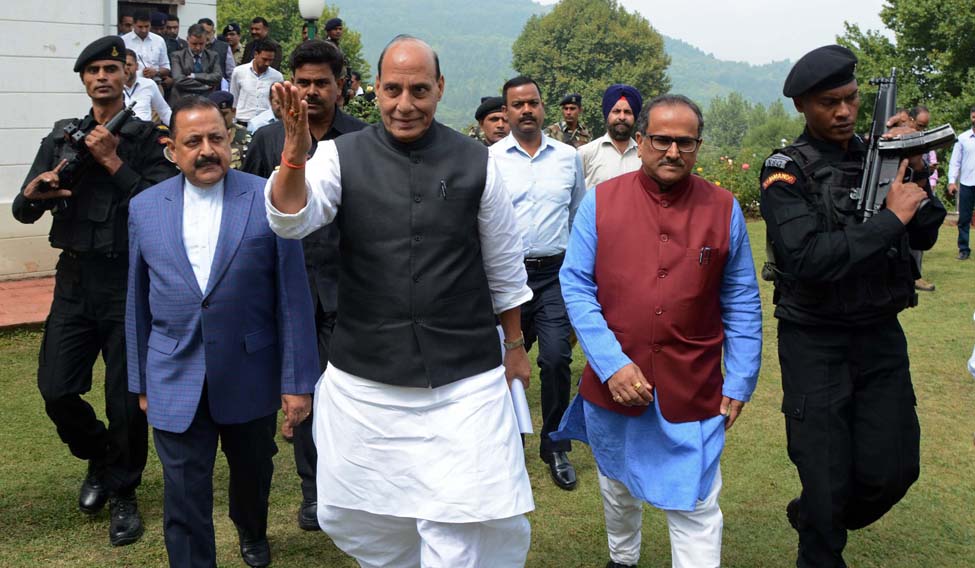Until August 15, the Centre had adopted a tough approach in Kashmir, countering street protests with gun-wielding security personnel, resulting in violence that claimed scores of lives over the last one year.
With winter approaching, it seems both the weather and mood have changed. Prime Minister Narendra Modi, in his I-Day address, said there was a need to "embrace" the Kashmiris and "neither bullets nor abuse" was going to solve the problem.
Less than a month later, Home minister Rajnath Singh embarked on a visit to the valley—the longest in recent times—attempting to put this conciliatory approach into practice.
But experts feel it is mere optics and formality as facts paint a completely different picture.
Speaking to THE WEEK , M.M. Ansari , former Jammu and Kashmir interlocutor, said that Rajnath's visit to the valley coincided with the crackdown on Hurriyat leaders who are being booked under corruption and terror charges by the National Investigation Agency (NIA). He pointed out that during the Vajpayee regime, Hurriyat was brought to the discussion table. Successive governments have been aware of the way the Hurriyat has been functioning, says Ansari, who minces no words in saying that the Central government has also been providing support, financially and otherwise, to the Hurriyat leadership.
"How is it that the government did not know what was happening, and now suddenly there is a crackdown on the Hurriyat?" he wondered.
Ansari says that whether it was Rajnath Singh's visit or the Congress delegation led by former Prime Minister Manmohan Singh, there was a complete lack of trust and alienation amongst the Kashmiris which could not be addressed by such tokenism.
"If the government is so serious, why has it not initiated talks with Pakistan to resolve the border issue?" he says.
Today, the home minister is talking about sealing the international border. "If the entire border with Pakistan is still under dispute, which border will we seal?" he asks.
Ansari feels that if India can resolve its border dispute with Bangladesh by exchanging enclaves, why couldn't it follow a similar approach along the western border? He also questions how the BJP agreed not to tinker with Article 370 granting special status to Kashmir when it joined hands with PDP to form the government, but now it was trying to revisit Article 35(A).
"I don't think the government is serious about reaching out to Kashmiris and their sentiments," he says.
Meanwhile, CPI leader D. Raja, who was earlier a part of parliamentary delegations to Jammu and Kashmir, feels that while such visits are important by a home minister to a strife-torn state, it should not devolve into tokenism.
"The government needs to act upon its assurances made to the people of Jammu and Kashmir. I would say that such visits are important as a confidence-building measures. But then it needs to translate into some action so that people can see that the government is keen to listen to them and keep its promises at the same time," says Raja.
Ansari says the rate of unemployment is the highest in the state which is also directly related to the security concerns in the valley as more and more unemployed youth are getting attracted towards militancy. So, from basic issues like employment for youth to the promise made on rehabilitation of Kashmiri Pandits and Article 370, the people of Kashmir want their concerns to be addressed and fears allayed.





